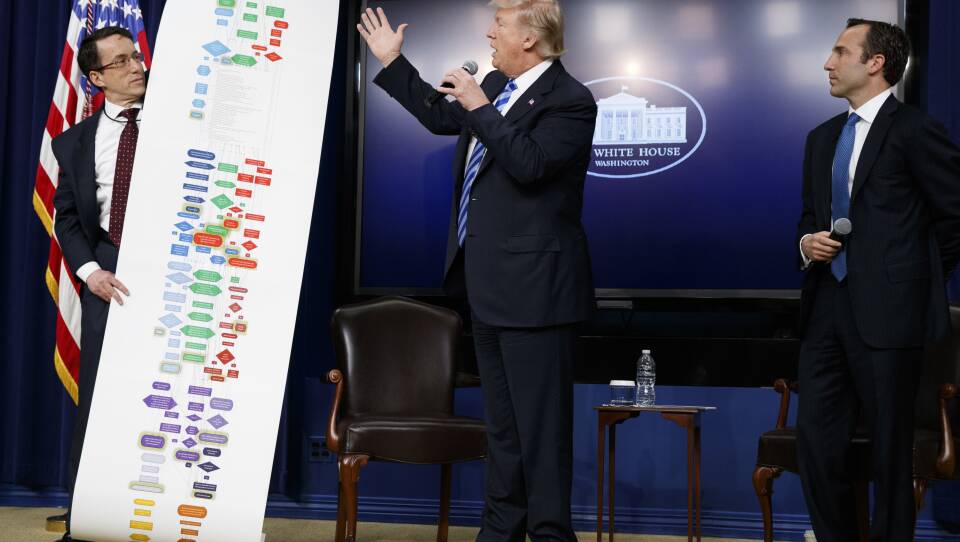Another top adviser to President Trump is leaving the White House. An administration official tells NPR that DJ Gribbin, architect of the president's $1.5 trillion infrastructure plan, "will be moving on to new opportunities."
This latest staff departure comes as the infrastructure plan hits a roadblock in Congress.
A little over a year ago, Gribbin left his job at Macquarie Capital, a finance and asset management firm where he focused on public-private partnerships, to take the lead on crafting a infrastructure plan for the president. The proposal relies heavily on using incentives to attract private investments.
Trump initially promised he'd deliver a trillion-dollar infrastructure plan in his first 100 days, but it took more than a year until Gribbin and the White House would unveil and deliver the plan to Congress in February. And the president upped the ante , calling it "the biggest and boldest infrastructure plan in the last half-century," promising it would generate a $1.5 trillion investment in rebuilding the nation's highway, railways, bridges, tunnels, airports, seaports and water systems.
But the Gribbin-drafted proposal calls for federal spending of just a fraction of that, $200 billion over 10 years, with the rest coming from state and local governments and private investors.
Gribbin told NPR's All Things Considered that America is up to the task. "It's apparent that cities and states and counties are eager to invest more in infrastructure," he said.
And he pushed back on the notion that the administration can't ask state and local taxpayers for such funding, when a much a bigger federal investment in infrastructure is long overdue.
"All of these funds come from taxpayers — right?" said Gribbin. "And if you go out and you ask the public, you know, where do they want to invest? They have much more confidence if they write a check locally that that money will be spent in a way that they can be held accountable for than if they send a check to Washington."
He also added in a briefing for reporters that "this is in no way, shape or form ... a take-it-or-leave-it proposal. This is the start of a negotiation." And White House officials added that "the president has said he is open to new sources of [federal] funding," including an increase in the gas tax. "We want it to be bipartisan."
Nonetheless, the plan has received a cool reception in Congress. It calls for the $200 billion in federal funding coming from unspecified cuts elsewhere to the federal budget, which Democrats vehemently oppose. Democrats also want a much bigger portion of the infrastructure spending to come from federal sources, such as the gas tax, while many Republicans refuse to consider a gas tax hike to fund it.
Copyright 2018 NPR. To see more, visit http://www.npr.org/ .




